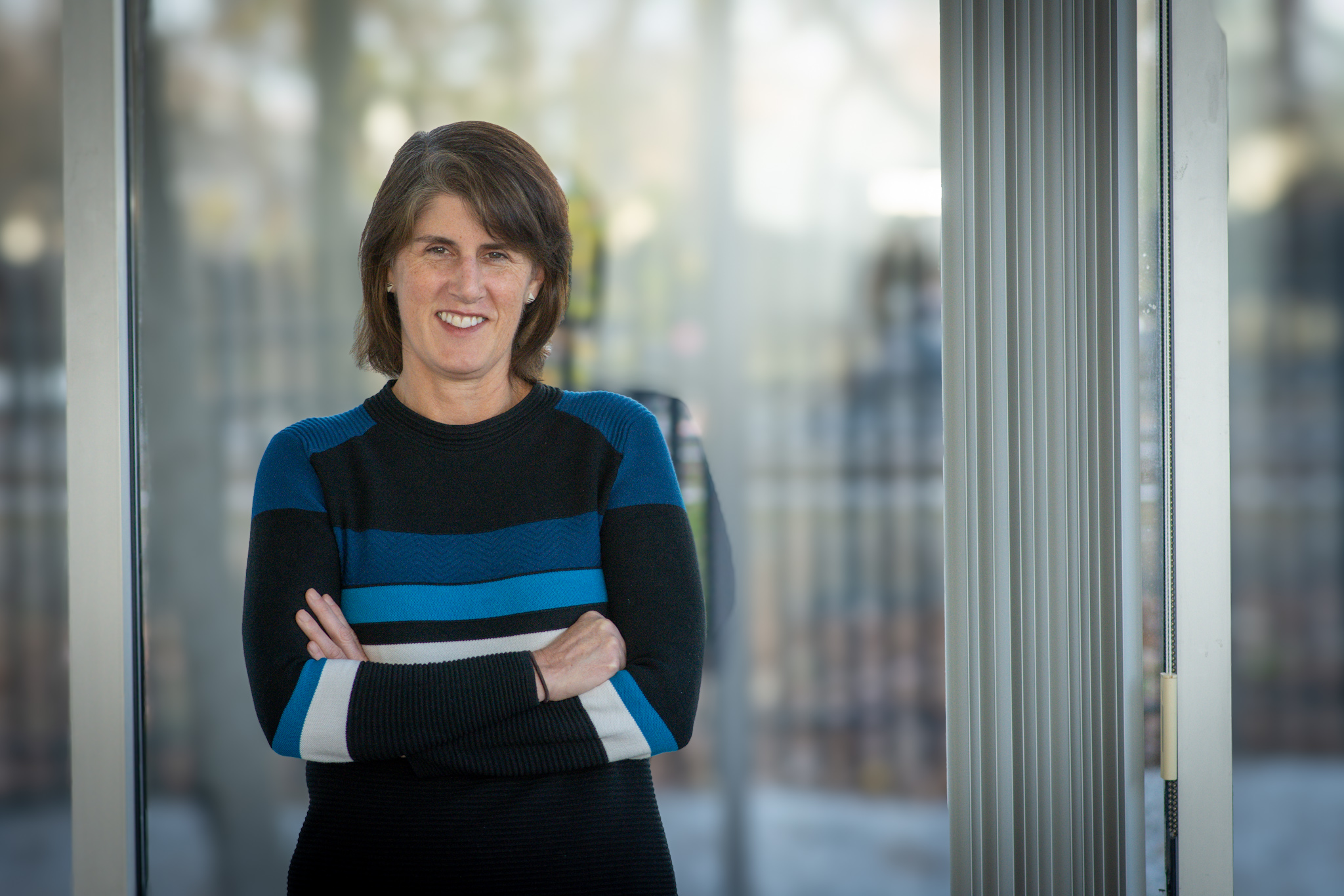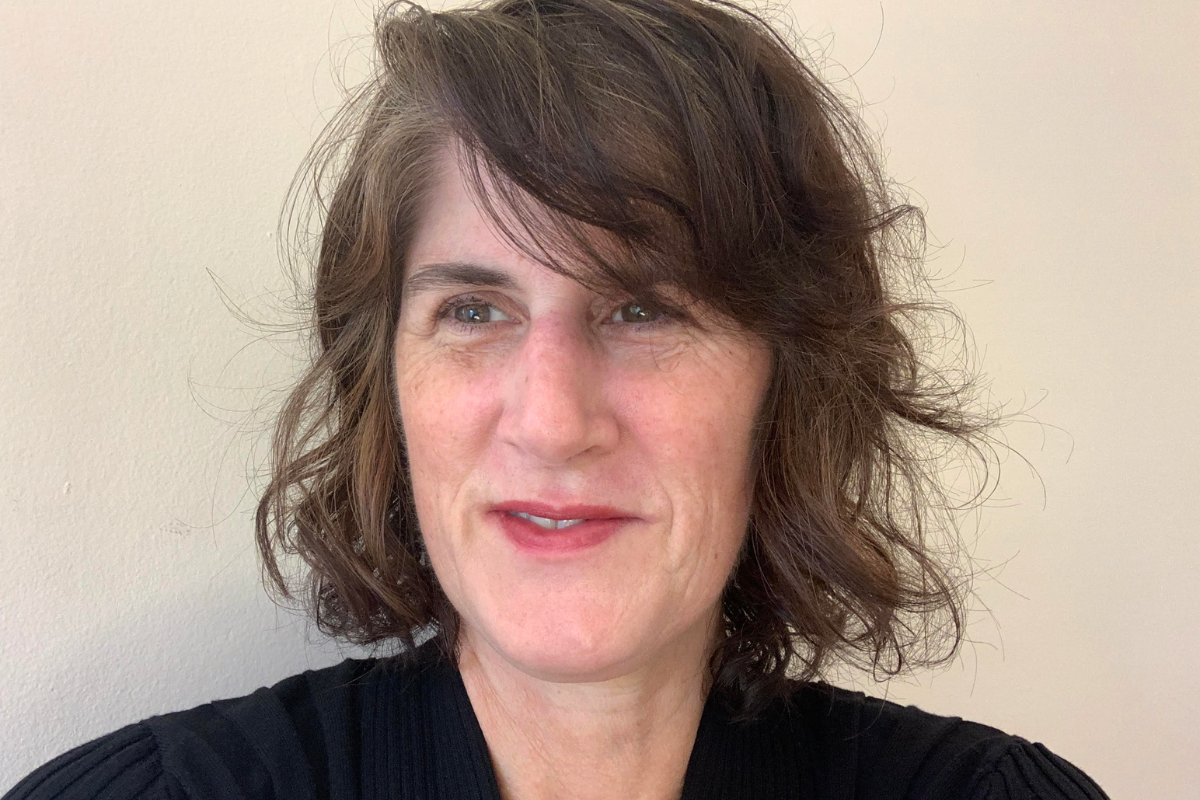
A warm welcome back to “Women in Circularity,” where we shine a light on women moving us toward a circular economy. This month, I connected with a compliance professional who specializes in recycling solutions: Andriana Kontovrakis. Andriana is the director of compliance services for North America at Reverse Logistics Group, an innovative tech-enabled company addressing extended producer responsibility (EPR) and product returns challenges on behalf of manufacturers and retailers on a global scale. She has more than 25 years of experience in the EPR and environmental compliance industries.
Have there been any big shifts in your career over time?
I have worked in the recycling and compliance fields since finishing graduate school. The shift over the years has been less about subject matter, and more about the types of companies I have worked for – from nonprofit and government to the private sector, and how these entities operate differently. During this time, I have also witnessed a major mindset shift in the U.S. about the practicality of EPR. When I first entered the field, circular economy and EPR were quite conceptual and only seen as something done in Europe and/or as a specific solution for problematic materials such as electronics and paint, which were only collected at household hazardous waste sites in the U.S. Now, everyday products that comprise good portions of the U.S. waste stream, such as packaging and textiles, have EPR laws or legislation in play. This shift is encouraging and exciting.
What are some of the impacts your work has on clients and the environment?
At Reverse Logistics Group we provide data management, regulatory compliance reporting and product take back opportunities for producers affected by EPR laws in the U.S. and abroad. We also operate 40-plus producer responsibility organizations (PROs) for packaging, electronics or batteries around the world. We touch many industries and work with a large number of stakeholders in the supply chain to ensure products and their packaging are being responsibly handled and recycled at the end of their useful life.

Andriana Kontovrakis
For example, RLG intends to be a packaging PRO in Oregon under the Plastic Pollution and Recycling Modernization Act and is actively engaging with the Oregon Department of Environmental Quality, local municipalities, haulers, materials recovery facilities and manufacturers that will be affected by the law to better understand their concerns and ensure that we plan accordingly so implementation of the law will go smoothly. Oregon will be one of the first U.S. states to implement a packaging EPR law and it is exciting to be a part of this new endeavor.
Is there an initiative you recently worked on that you found particularly engaging?
I live in New Jersey and serve on the board of the Association of New Jersey Recyclers. Earlier this year, we formed an EPR legislative committee, which I chair. It has been interesting working with county and municipal recycling coordinators to learn what products they find most burdensome or costly to handle from a disposal, reuse or recycling perspective. In turn, we have reached out to collaboratively discuss with recyclers and trade groups about legislative and implementation challenges and opportunities. For the past few years, my work has been focused on EPR compliance and data management services for the electronics and packaging sectors, so collaborating with a broad swath of stakeholders to develop solutions for other challenging materials, such as rechargeable batteries, mattresses and solar panels, is something I enjoy.
In your opinion, what are some of the factors driving companies to further commit to circularity?
Consumer demand and incremental regulatory change focused on climate change and related emissions is certainly a driving force. Likewise, EPR, recycled content and product bans and toxicity are also key factors driving companies to embrace circularity. And not just in the U.S., but globally.
Can you recommend an off-topic podcast that could help others working in our field?
I find the podcast series “How I Built This,” by Guy Raz, to be quite enlightening. The host interviews founders of large companies to learn how they started with little to no money and just an idea and grew their business to what it is today. The podcast occasionally touches on circularity-related business models, but what I enjoy about these stories is how entrepreneurs repeatedly overcome adversity and naysayers to ultimately create a successful business. This resonates with me and reminds me about what our field continues to do – to innovate despite the odds against us.
MaryEllen Etienne is the creator of “Women in Circularity.” Etienne works on the Market Transformation and Development team for the U.S. Green Building Council. She has over 20 years of experience in sustainability and is a champion of the circular economy.

